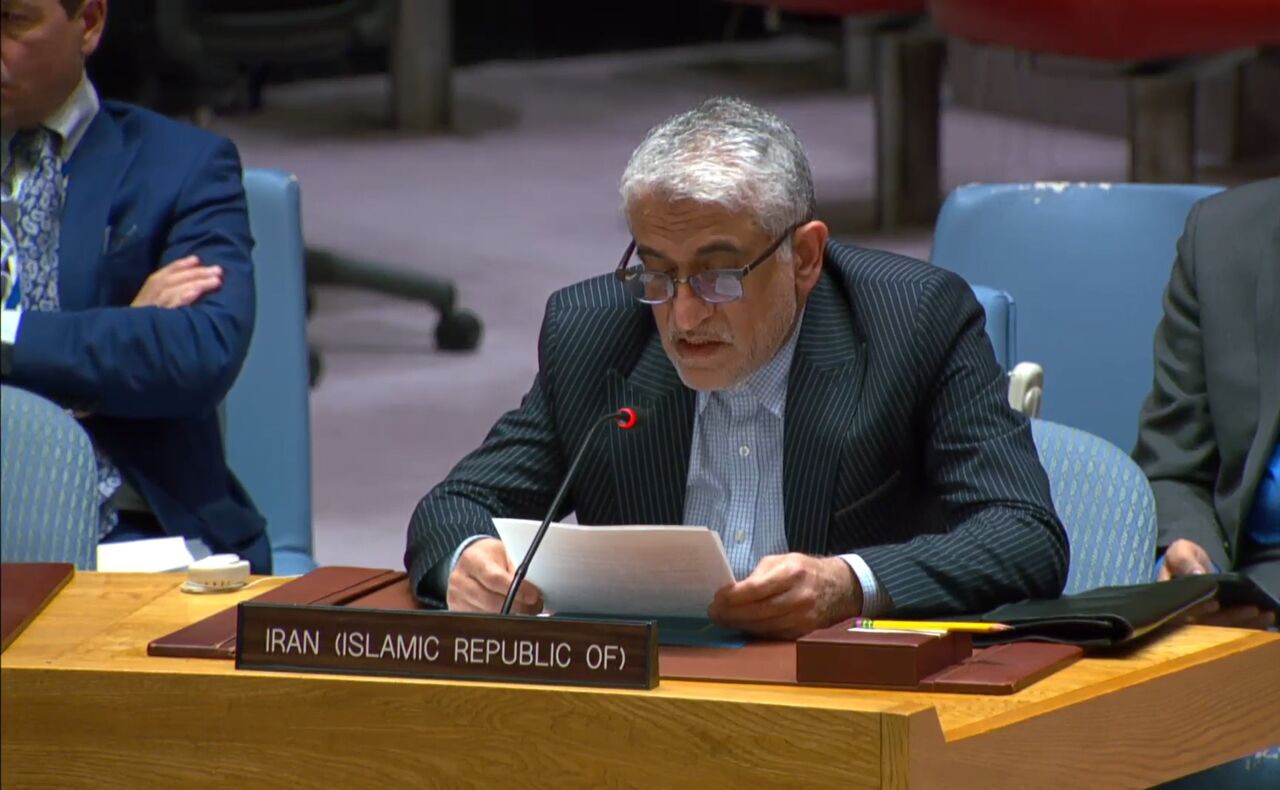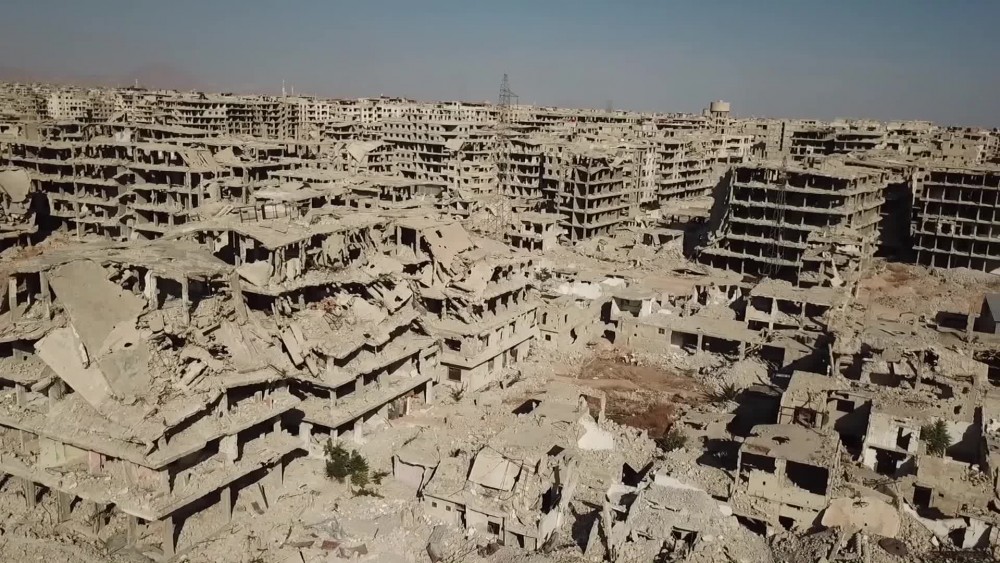Iran Press/ America: Iran's ambassador to the United Nations Amir Saeid Iravani during the meeting on Monday local time said that the Israeli regime has been deliberately targeting civilians and vital infrastructure, grossly violating international humanitarian laws and the principles contained in the UN Charter with its attacks on the regional countries, including recently on Yemen.
Iran's Envoy said: "We strongly condemn Israel’s continued aggressions against the sovereignty and territorial integrity of Syria's Arab Republic and other nations of the region."
He added: "Unfortunately, the international community and especially the UN Security Council have not been able to force this regime to stop its aggressive actions and terrorist attacks against the people and countries of the region; such a fact is very worrying."
Iravani stated that the Islamic Republic emphasizes the urgent need for quick and decisive action by the Security Council to hold this rogue regime accountable for its actions.
He went on to say: "The Israeli reprehensible acts, along with its recent act of aggression against Yemen which deliberately aimed at civilian and critical infrastructure, flagrantly violate international humanitarian law and the principles enshrined in the UN Charter, are a serious threat to regional peace and security. This regime with its nature and essence based on terror and aggression is a main source of insecurity and instability in the region and beyond."

Iravani added: "As usual, the representative of the United States attempted cynically to deny its responsibility for the current situation in Syria and the broader region by blaming Iran. Yet, an undeniable fact remains, the continued illegal presence of US occupying forces in Syria violates the sovereignty and territorial integrity of Syria, international law, the UN Charter, and UNSC resolutions, including resolution 2254 (2015). Furthermore, the illegal presence of US occupying forces in Syria is the main source of instability and insecurity, providing space for terrorist groups to solidify their position and perpetrate further atrocities."
Iran's senior diplomat added: "The situation in Syria remains dire, with the people suffering from ongoing humanitarian crises, aggression, and foreign occupation, as well as threats posed by US-backed terrorist groups. Additionally, inhumane sanctions, the politicization of refugee and IDP returns, and the obstruction of international support for Syria's reconstruction, driven by the US and its Western allies, have prolonged the conflict and exacerbated the suffering of the Syrian people. These illegal actions impose undue hardship and hinder Syria's path to recovery."
Iravani went on to add: "The recent UNESCWA study on the impact of unilateral coercive measures (UCMs) on Syria highlights the severe and widespread effects of these illegal actions on various sectors, exacerbating the humanitarian crisis and hindering the delivery of essential services and aid. Focusing on over-compliance, the study found that UCMs have led to inflation, shortages of basic goods, and a deteriorating economic and security situation."
According to the study, humanitarian exemptions fail to prevent disruptions, with service providers refusing to supply necessary educational, agricultural, and medical materials. The nutrition and health impacts of UCMs are most severe in all areas studied. Hospitals struggle to import medical items and repair equipment, leading to severe shortages of essential medicines, including cancer treatments and vaccines. Furthermore, the findings of the study expose once more the humanitarian claims of the United States and sanctioning countries as hypocritical. We urgently call for the immediate lifting of these inhumane measures.
The provision of impartial and non-politicized humanitarian assistance to all regions of Syria is crucial for saving lives. It is essential to plan humanitarian aid in a way that restores infrastructure, rebuilds the economy, and supports sustainable, long-term development in the country.
Currently, the funding allocated for the Syrian humanitarian response is severely inadequate, hindering the UN's ability to provide necessary assistance to those in need.
We call on donors to fulfill their pledges, hoping their support will ensure sufficient and predictable funding.
Iran welcomes the sovereign decision of the Syrian government to renew the permission granted to the United Nations and its specialized agencies to use the Bab al-Hawa crossing for an additional six months.
Early recovery projects must be prioritized, aiming to offer comprehensive support to those affected and facilitate their path towards recovery and resilience.

Facilitating Syria’s reconstruction and the safe return of refugees and IDPs to their original places of residence in Syria need to be part of an overall solution to the current conflict in Syria.
The interests of millions of Syrian refugees must not be held hostage for political gains by certain powers. Delaying their return will only prolong their suffering.
Iravani emphasized: "We will continue to support the people and Government of Syria in their struggle to overcome the threats of terrorism and foreign occupation. Terrorism remains a significant threat to Syria and the wider region and must be addressed decisively. However, the fight against terrorism must be carried out in full respect of Syria's national sovereignty, territorial integrity, and independence, and without using it as a pretext to violate these fundamental principles of international law."
He added: "The Islamic Republic of Iran is fully committed to contributing to a political solution to the Syrian crisis. We continue to extend our support to the Special Envoy's sincere efforts and commend his active engagement with all parties involved in the resolution of the Syrian crisis."
Iran stands firmly behind the prompt resumption of the Constitutional Committee meetings. We are committed to supporting this process. Moreover, Iran, alongside its partners in the Astana format, Russia, and Turkey, remains steadfast in its commitment to achieving long-term and sustainable normalization in Syria.
In this context, we fully support the resumption of Syrian-Turkish dialogue, recognizing it as a crucial element in these broader efforts.
Ashkan Salehian

